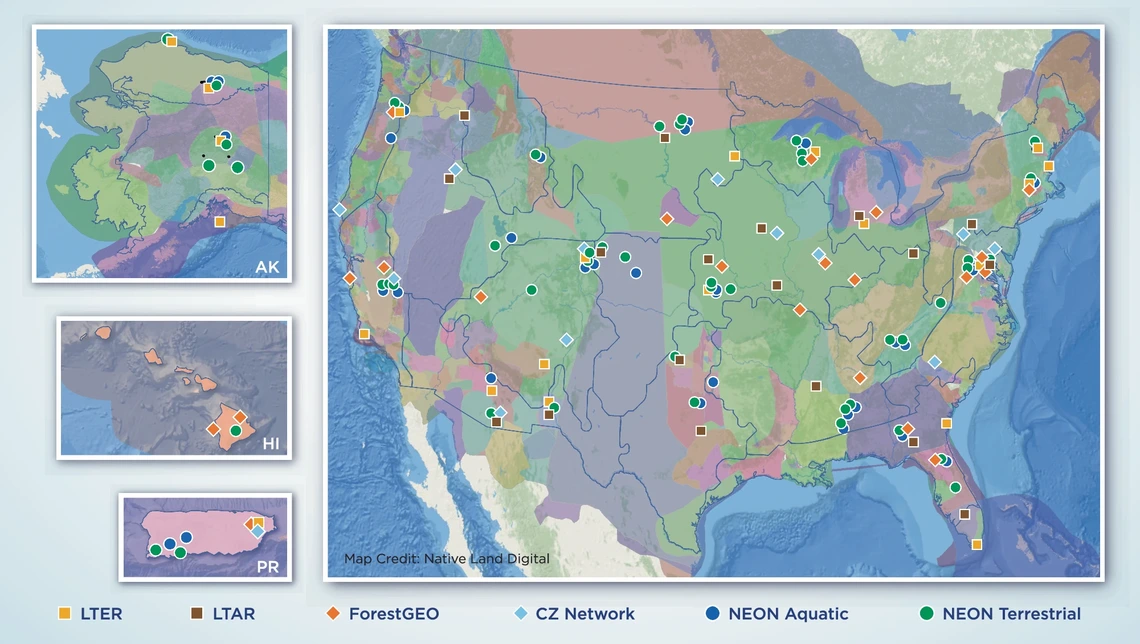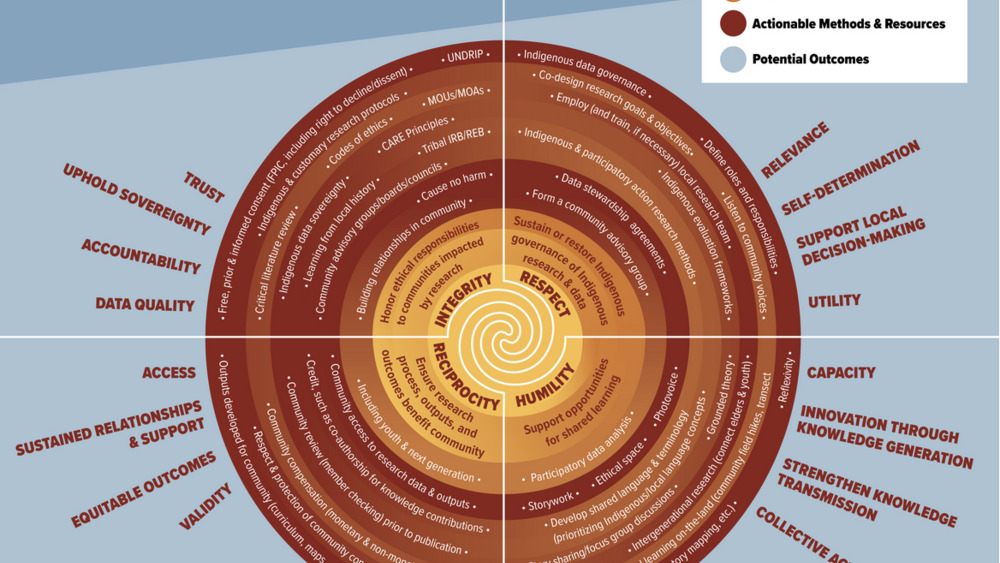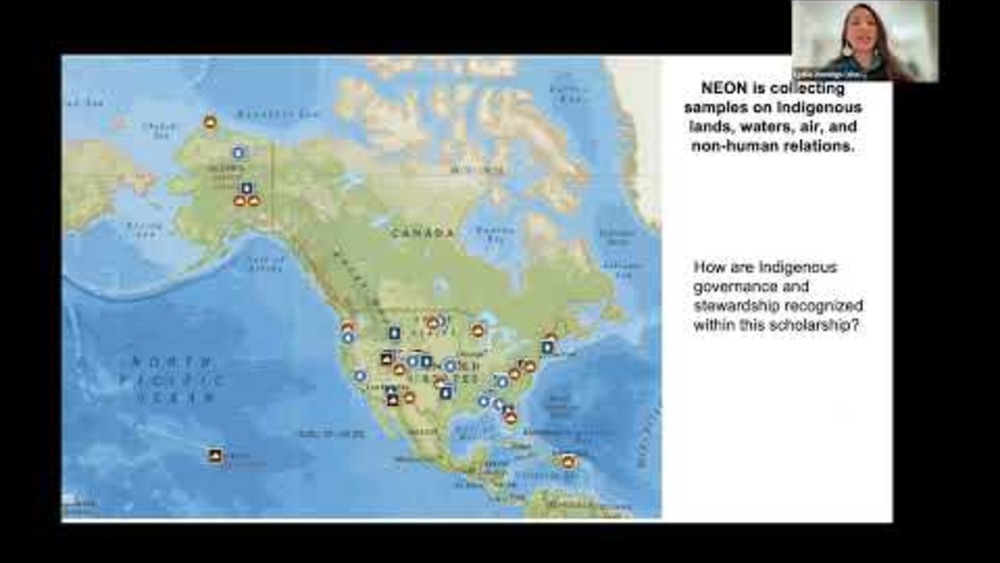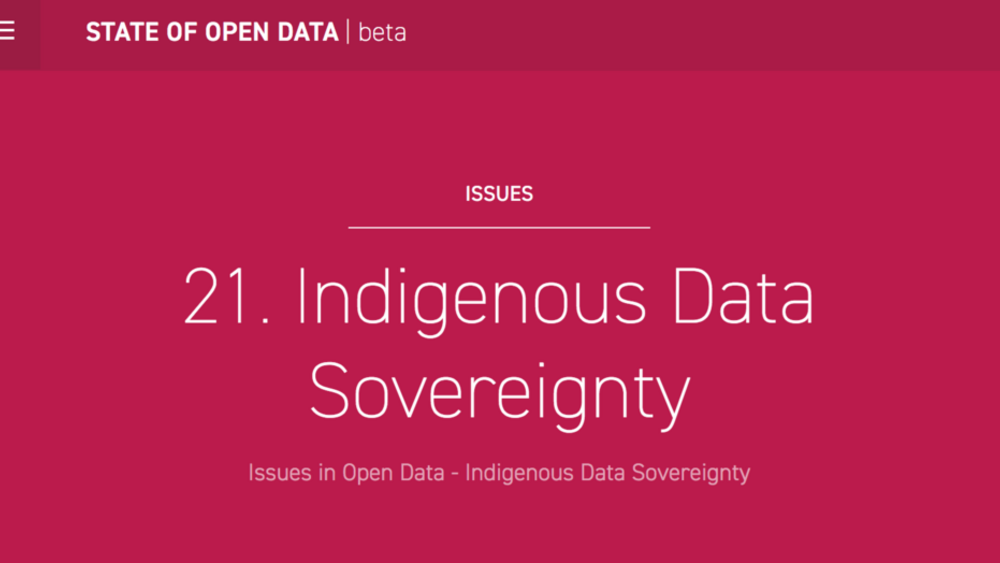In the age of big data and open science, what processes are needed to follow open science protocols while upholding Indigenous Peoples’ rights? The Earth Data Relations Working Group (EDRWG), convened to address this question and envision a research landscape that acknowledges the legacy of extractive practices and embraces new norms across Earth science institutions and open science research. Using the National Ecological Observatory Network (NEON) as an example, the EDRWG recommends actions, applicable across all phases of the data lifecycle, that recognize the sovereign rights of Indigenous Peoples and support better research across all Earth Sciences.
Additional Information
Jennings, L., Jones, K., Taitingfong, R. et al. Governance of Indigenous data in open earth systems science. Nat Commun 16, 572 (2025). https://doi.org/10.1038/s41467-024-53480-2




